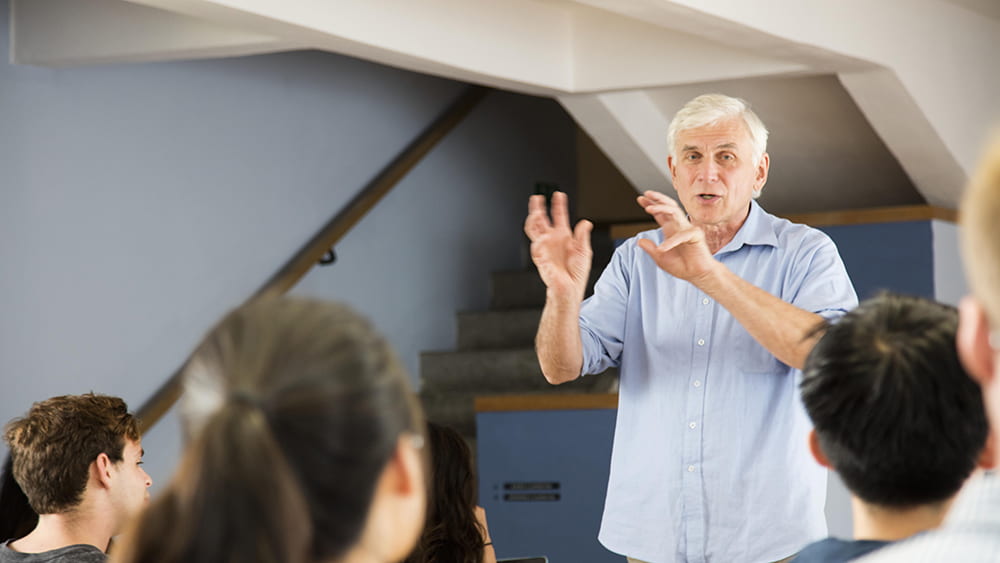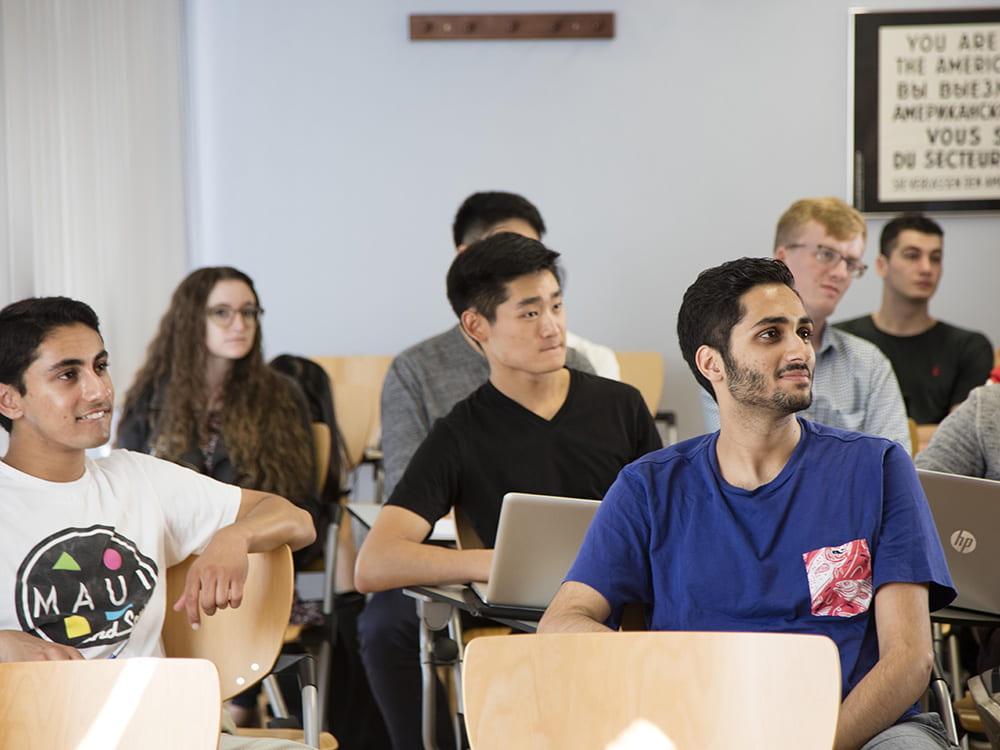In the late 1980s, revolution was stirring in Communist Czechoslovakia, and Jan Urban was at the center of it. While reporting for Radio Free Europe and the BBC, he was also secretly working with underground newspapers and leading a fledgling dissident network called the Eastern European Information Agency. His efforts helped bring the country to the 1989 Velvet Revolution, a nonviolent uprising that toppled the Communist regime and brought democracy to his homeland. Because of his pivotal role in the revolution, Urban became the leader of the Civic Forum, a political, anti-communist movement he helped found.
In the first free elections in June 1990, the public turned its attention to Urban as a natural choice for prime minister, but he declined. The reason? He says, “I was too good at giving speeches and mobilizing crowds. It was frightening to have such power, and I gladly gave it up.”
Teaching from Personal Experience
Urban turned away from politics and spent several years as a war journalist in the former Yugoslavia and Iraq. He began teaching courses about political dissent and civil disobedience at the Czech Republic’s Charles University. At NYU Prague, too, he teaches its most popular course, Modern Dissent in Central Europe: The Art of Defeat. In the classroom Urban uses his personal history as a case study.
He knows it’s far more compelling to experience a personal account of what happened than to read about it in a textbook. His goal is to help students understand how civil disobedience led to positive changes for the people of the Czech Republic—and what it can also do for movements like Black Lives Matter and Occupy Wall Street.
“To act outside of what is mainstream and fashionable is more important today than ever before, and political dissent is a tool we can use to dismantle ideas that no longer work. Sometimes it’s our civic responsibility to be different.” —Jan Urban
Students Explore Obedience and Resistance
In class discussions students work through topics like obedience and dissent, the media and propaganda, and government and civic responsibility. Urban challenges them to think by being the dissenters in the room. “Young people often say what they’ve been taught without questioning it deeply, so it’s necessary to provoke them, expose their prejudices, and destroy their ready-made conclusions,” he says. Though he makes his students uncomfortable at times, he also broadens their thinking. “Television has changed our lives and democracies into entertainment and emotional games,” Urban says.
Repurposed from NYU Global Notebook.

